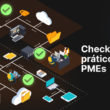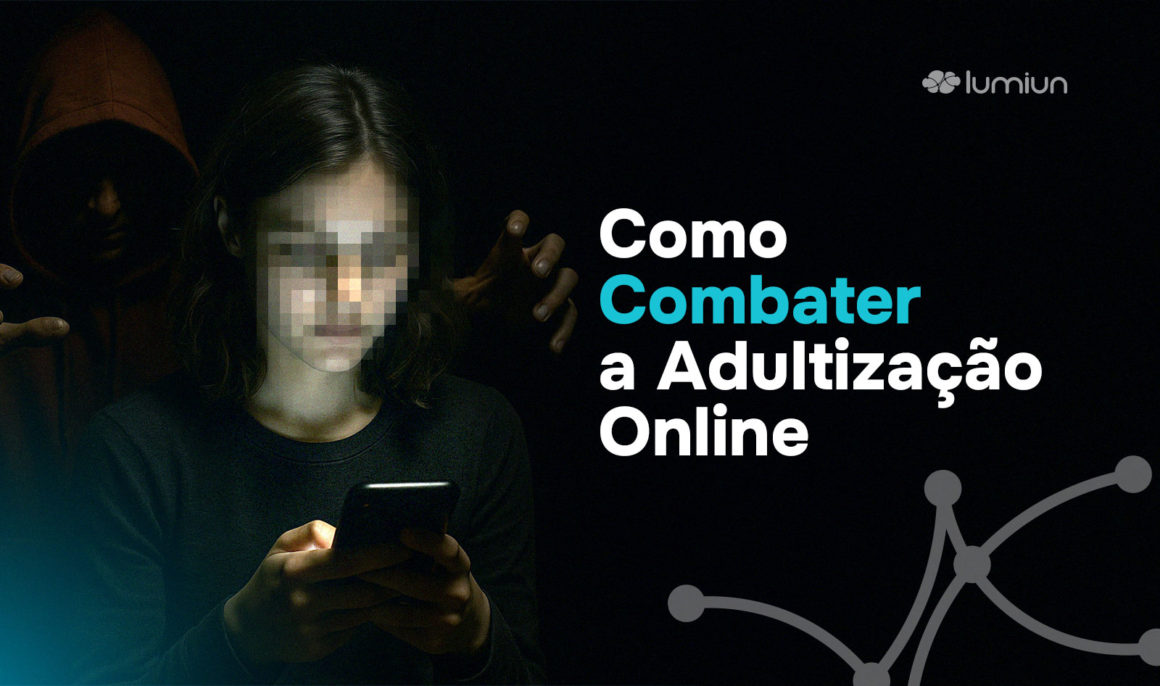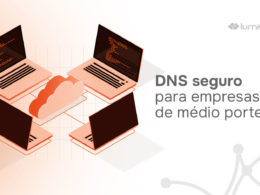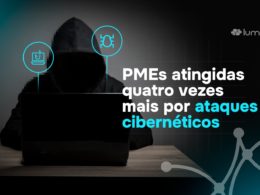The internet is a universe of possibilities, but like any powerful tool, it also presents its dangers. Recently, Felca's video " ADULTIZATION – AND WHAT THEY DIDN'T TELL YOU " shed light on a sensitive and troubling topic: the adultification and, in extreme cases, the sexualization of children and adolescents for online monetization purposes. This isn't just a "content" problem; it's a serious social issue that demands the attention of parents, educators, businesses, and society as a whole.
In this article, we'll delve deeper into the points raised by Felca, understand the devastating impact of this practice, and, most importantly, present some practical solutions to prevent this type of content from being consumed on your company's networks and devices, and especially to protect our children. Our goal is to empower small and medium-sized businesses, as well as schools, to create safer online environments without the need for heavy investment in complex tools.
Reality Check: What the Felca Video Shows Us
Felca, with that familiar, direct and investigative style, opened many people's eyes to a reality many prefer not to consider. The video begins by discussing "adultification" in a lighthearted way—like a child acting as a mini-entrepreneur, you know?—but soon turns serious, revealing the darker side of the problem: the exploitation and sexualization of children and adolescents in search of clicks and money. He presents real-life cases that make us question: is the internet truly safe for our little ones?
Keep an eye on these points that Felca highlighted:
- Monetization at any cost: It's shocking how the ease of making money on platforms like YouTube, TikTok, and Kwai has encouraged the creation of highly questionable content. Exposing children has become a dangerous shortcut to fame and profit, and this is serious.
- Shocking Cases: Felca spared no detail and brought heartbreaking stories, such as the one on the "Bel para Meninas" channel, where a child was exposed to traumatic situations; Ítalo Santos' reality show, which sexualizes teenagers; and the unbelievable case of Caroline Dreher, whose mother sold explicit content of her own daughter. These examples are a cruel reminder that online child exploitation is a painful reality and much more widespread than we imagine.
- Algorithms and the Pedophilia "Bubble": One of the scariest aspects is how social media algorithms can create content "bubbles." They end up directing suggestive material about children to those who have already expressed interest, turning these platforms into breeding grounds for predators who openly exchange illegal material. It's a vicious and dangerous cycle.
- Devastating psychological impact: Psychologist Ana Beatriz Chamati, interviewed in the video, emphasizes the damage this exposure does to children's minds. It can cause lifelong trauma, mental health problems, and difficulties in building healthy relationships in the future. And when the exploitation comes from within the home, the child's basic trust is destroyed, further exacerbating the situation.
Felca didn't just report it; he went out and made a difference. He reported profiles to the police, donated the proceeds from the video to NGOs like Childhood Brasil and Instituto Liberta, and encouraged everyone to report anonymously through Disque 100. The updates at the end of the video show that his actions are already yielding results, with investigations underway.
Our tip: Watch the full video. It's powerful content, yes, but it's essential to understanding the urgency and gravity of what's happening. And please share! The more people know, the more awareness will be raised!
The Social Problem: A Silent and Growing Threat
What Felca's video shows us is not an isolated case, but rather the tip of a giant iceberg. The adultification and sexualization of children on the internet is an invisible threat, but with consequences that can destroy lives. Here in Brazil, with so many people connected and the relentless pursuit of likes and money, the terrain is fertile for exploitation. We're not just talking about "inappropriate content"; we're talking about stealing a child's childhood and destroying their mental health.
For those reading this, it's important to understand that this problem isn't limited to the screen. Platforms like Instagram, TikTok, and Telegram, which are incredibly useful, can also be used to spread Child Sexual Abuse Material (CSAM). And what about algorithms? They're designed to hook us, to engage us, and they often end up prioritizing what gets the most clicks, turning a blind eye to ethics or the damage it can do to the lives of the most vulnerable. Brazil, with its hyper-connected social media audience, is an easy target for this sad reality.
It's a problem that affects the entire world, but it requires us to act here and now. Reporting is essential, as is education. But prevention, with tools that filter out the bad, is just as important. We need to create a safer digital environment for our children and adolescents. We can't wait for the problem to knock on our door; we need to get out there and protect the future of our society.
Tools to Block Harmful Content
To combat this wave of harmful content and protect children, adults, and organizations, DNS filtering tools are our greatest allies. They act as a barrier, preventing access to malicious websites, pornography, abusive material, and other content that can cause legal and reputational problems for businesses and schools. There are a variety of options out there, from free to more robust paid options. Our aim here is not to advertise, but rather to provide you with a range of possibilities so that your company or school can choose the one that best fits your reality and legal compliance needs.
The Power of DNS: The First Line of Defense
Think of DNS (Domain Name System) as the internet's "phone book." When you type in a website, the DNS translates that name into an address your computer understands, and then your browser finds the site. A DNS filter comes into play, blocking access to addresses that lead to dangerous or unwanted content. It's a highly effective solution because filtering occurs before the content even loads, protecting everyone connected to your network.
If you want to learn more about DNS, read and watch the video in the DNS in Practice .
Free and Affordable Tools: Get Started Now!
If you're short on cash or want to get started without spending anything, there are excellent options that already provide good security:
- Quad9 : Free, public DNS service focused on security. Blocks malicious domains like phishing, malware, and, most importantly, child abuse. It's simple to set up and requires no additional installation.
- OpenDNS FamilyShield : A free version of OpenDNS geared toward families. Automatically filters pornography and adult websites. It can be configured directly on the router, protecting all devices on the network.
- Google Family Link : It's not a DNS, but it's free for Android and iOS. It allows parents to manage their children's device usage, block apps, filter websites, and control screen time.
- Microsoft Family Safety : Free and integrated with Windows. Includes web filters, screen time limits, and explicit website blocking. Ideal for those already in the Microsoft ecosystem.
- Lumiun DNS Free : A solution developed in Brazil CSAM filter , available on all plans. Free is recommended for small or local networks with up to 20 users .
Paid Options and More Robust Solutions: For Those Who Need More
For businesses, schools, and institutions that need more features, detailed reporting, and coverage at scale, there are paid options with advanced controls:
- DNSFilter : DNS filtering solution for businesses and families, with malware and porn blocking and comprehensive reporting.
- Cloudflare Gateway : Part of Cloudflare's security suite, it offers DNS filtering, threat protection, and content access control. It offers a free plan and premium versions with more features.
- Cisco Umbrella : Enterprise solution that includes content filtering (pornography, malware, and CSAM). Simplified options for home use are also available.
- SafeDNS and ScoutDNS : Offer DNS filtering with category control and different plans as needed.
- Lumiun DNS Pro and Education : In addition to CSAM blocking (present in all plans), these plans offer all available filters , advanced reporting, and personalized support. They're also the only solution on this list that bills in Brazilian reais , accepting credit cards, boletos, and Pix payments . The Education plan also offers special conditions to encourage educational institutions to protect their students.
Lumiun DNS: Comprehensive Protection for Businesses and Schools
Lumiun Lumiun DNS stands out in the content filtering landscape for its proactive approach and commitment to digital safety at all levels. Besides being a powerful tool for protecting children, it's essential for businesses and schools seeking to maintain a safe and legally compliant online environment. Why? Because Lumiun DNS completely free child abuse content blocking filter that acts as a barrier against content that could have serious legal implications for your organization.
This initiative is the result of a strategic partnership with Project Arachnid , an incredible tool from the Canadian Centre for Child Protection. Project Arachnid is recognized worldwide for detecting and removing Child Sexual Abuse Material (CSAM) from the internet much faster than any human could.
Legal Implications for Companies and Schools
It is important to understand that, in Brazil, accessing or disseminating Child Sexual Abuse Material (CSAM) is a crime, according to the Child and Adolescent Statute (ECA) , in its articles 241-A, 241-B, 241-C, and also by the Penal Code . Furthermore, the Brazilian Internet Civil Rights Framework (Law No. 12,965/2014) establishes principles, guarantees, rights, and duties for the use of the internet in Brazil. Although it does not detail the direct liability of companies for the acts of their employees, case law and doctrine have moved to hold accountable organizations that fail to adopt adequate preventive measures to curb illicit activities on their networks.
Recent Legislation Updates (2024–2025)
In recent years, Brazil has made significant progress in legislation aimed at protecting children and adolescents from abuse, including in the digital environment.
In January 2024 Law No. 14,811/2024 was enacted , creating the National Policy to Prevent and Combat Sexual Abuse and Exploitation of Children and Adolescents. This law toughened penalties by amending the Penal Code , the ECA , and the Heinous Crimes Law (Law No. 8,072/1990) . Among the changes are:
- Classification of bullying and cyberbullying as crimes
- Harsher penalties for sexual crimes against children
- Qualification as heinous of crimes such as rape of vulnerable people and child sexual exploitation
In 2025 , the Constitution and Justice Committee (CCJ) approved an increase in the penalty for the enticement of children online (art. 241-D of the ECA) , which went from 1 to 3 years to up to 4 years in prison, reinforcing the fight against grooming and predatory approaches online.
Another important milestone came in November 2024 , when the Senate approved a bill (still under consideration in the House in August 2025) that seeks to impose greater accountability on digital platforms . The bill provides for stricter rules for content moderation and incident reporting , with a focus on protecting children from digital abuse.
These changes reflect pressure from society and agencies. Between 2023 and 2024 alone, SaferNet registered more than 71,000 reports of online sexual violence against children and adolescents , a record number. Reports to SaferNet of child sexual abuse and exploitation online increased 114% after Felca's viral video, according to the organization.
The National Cybersecurity Strategy (E-Ciber)
On August 4, 2025 Decree No. 12,573 was published , which established the new National Cybersecurity Strategy (E-Ciber) .
This national policy prioritizes the protection of vulnerable groups , including children, adolescents, the elderly, and neurodivergent individuals. The planned actions include:
- Inclusion of cybersecurity in school curricula at all levels
- Training of teachers and managers , both public and private
- Promoting the safe use of cyberspace
- Expansion of support services for victims of cybercrime
- Closer cooperation between the public and private sectors to mitigate digital risks
This encourages companies and schools to adopt preventive measures , aligning with the need for digital resilience and legal compliance, including in combating online child exploitation.
Real Risks for Companies and Schools
Imagine the scenario: an employee accesses or shares CSAM (child sexual abuse material) using your company's network or devices. In addition to the devastating impact on your company's image and reputation, your organization could face severe legal sanctions , such as heavy fines and even criminal liability for managers for omission or negligence.
In the case of schools, the responsibility is even greater, as the duty to protect children and adolescents also extends to the digital environment.
Digital filtering tools can make all the difference. By adopting a solution like Lumiun DNS , for example, your company or school gains an effective barrier against access to child abuse content. And best of all: this feature is free for up to 20 users on the network, and the Education plan offers a special price.
It's worth remembering: filters and blocking are powerful, but they don't solve problems alone . Complete protection depends on three pillars:
- Technology (filtering and monitoring tools)
- Education and supervision (constant guidance for children and adolescents)
- Reporting (official channels such as Disque 100 and SaferNet )
It is the sum of these actions that guarantees more effective protection.
Practical Non-Digital Tips: Beyond Technology, the Human Connection
Sure, technology helps a lot, but protecting children in the digital world goes far beyond filters and blocking. Open conversations, honest conversations, and close supervision are the foundation for ensuring our young people grow up safe and happy. Check out these tips that complement digital tools:
- Open and Constant Conversation: Create an environment where children feel comfortable sharing what they see and do online, without fear of reprimand. Encourage them to share experiences, doubts, and even fears. Explain the dangers of the internet in a way they understand, appropriate for their age.
- Active Supervision and Presence: Be present in your children's or students' digital lives. It's not to spy, but to monitor, guide, and participate. Play games together, watch videos together, explore new websites. Get to know the platforms they use and who their online friends are.
- Clear Rules and Limits: Set internet usage times, what content is allowed, and where devices can be used. Explain the reasons for these rules and be firm. Using passwords and setting up children's profiles on platforms helps a lot.
- Teach to Think: Show your child that not everything online is true. Teach them to question, identify fake news, and recognize when something doesn't seem right. Encourage them to think before clicking, sharing, or talking to strangers.
- Encourage the Real World: Balance screen time with outdoor play, reading, sports, and meeting real friends. This is crucial for healthy development and helps reduce internet dependency.
- Report it! Don't be afraid! If you or your child encounter anything strange or abusive, report it immediately. In Brazil, Dial 100 is the channel to report human rights violations, including sexual exploitation of children and adolescents. Other important sources include SaferNet Brasil ( https://new.safernet.org.br/ ), which receives anonymous reports and helps combat cybercrime, and Cybercrime Police Stations .
- Support Those Who Fight: If you can, support NGOs like Childhood Brasil ( https://childhood.org.br/ ) and Instituto Liberta ( https://institutoliberta.org.br/ ), which Felca mentioned. They work hard to protect children and adolescents from abuse and exploitation.
Cybersecurity with Purpose: Protecting Lives
Felca's video is a wake-up call that we absolutely cannot ignore. Adultification and child exploitation online are complex problems, yes, but they require a response from everyone. There's no magic solution, but the combination of technological tools, like Lumiun DNS, with education, open dialogue, and attentive supervision, can make the digital environment a much safer place for our children.
For companies and schools, the responsibility is even greater, and the opportunity to make a difference is enormous! By implementing content filtering solutions and raising awareness, you not only become an active and essential part of protecting our young people, but you also protect your organizations from legal and reputational risks . Remember: online safety is everyone's responsibility, and Brazilian law is clear about the consequences of accessing or disseminating CSAM.
Watch Felca's video, share this article, report any issues you see, and use the tools at your disposal—especially those like Lumiun DNSthat offer free protection against child abuse content. Together, we can build a digital future where children are truly protected and where businesses and schools operate safely and legally.










